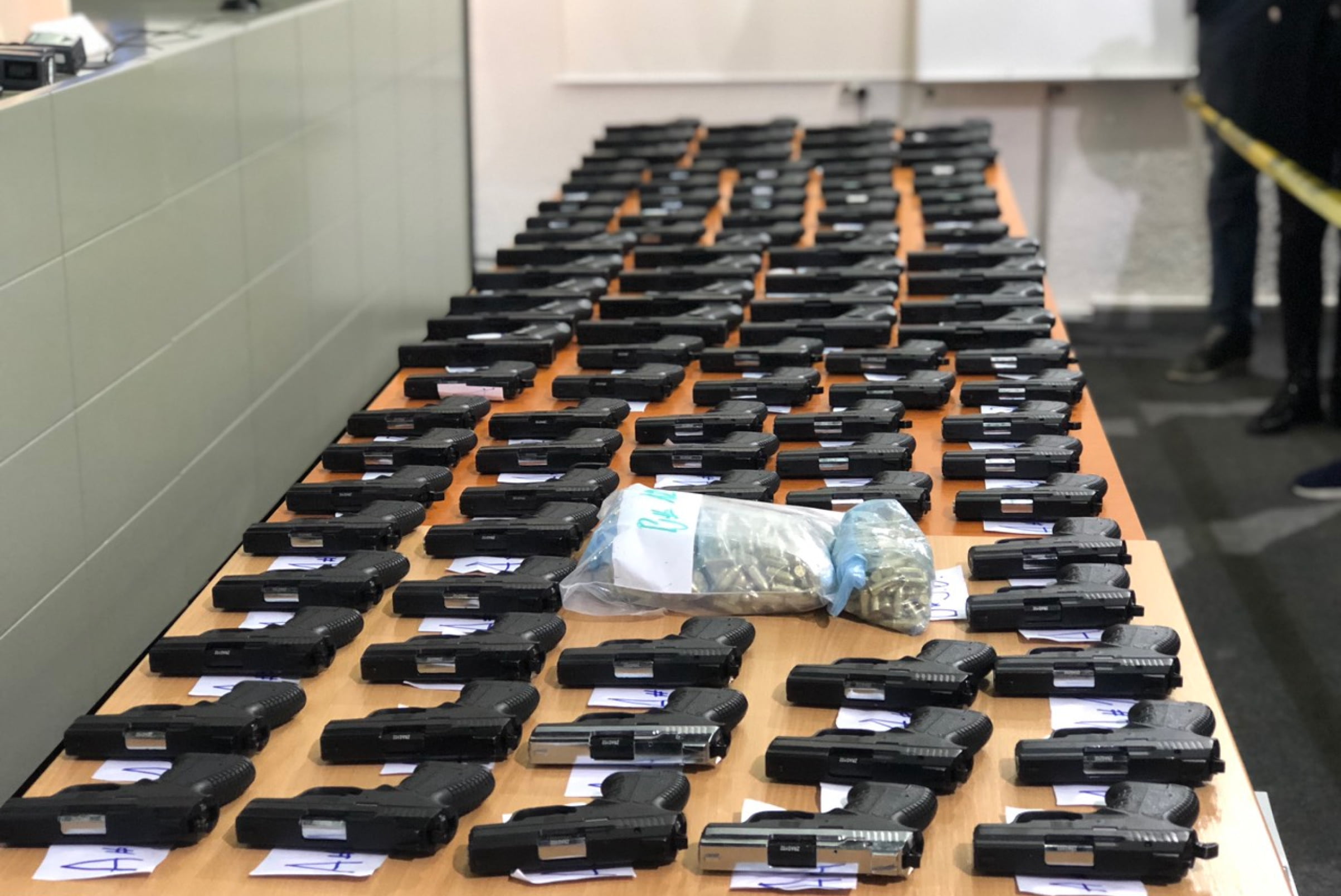Kosovo*

Countries & Territories
In Kosovo*, UNDP continued the implementation of the Kosovo Safety and Security Programme (KSSP) and the project designed to support the functioning of the rule of law institutions and improve access to justice.
Through the KSSP, UNDP facilitated trainings for the law enforcement officers in the police service of Kosovo and North Macedonia in line with community policing standards: 340 officers (including 32 women) improved their knowledge on types of weapons and explosives, as well as on legal instruments for the control of small arms and light weapons (SALW) and intelligence-led policing. In addition, 90 law enforcement officers (including 19 women) advanced their knowledge on effective ballistic investigations and the importance of information exchange to address illicit arms trafficking.
To enhance the technological capacities of the Kosovo border police in combatting the trafficking of weapons, UNDP provided advanced equipment that allowed the detection of illegal ammunition and improved SALW control. According to the Kosovo Police official statistics, in 2022 the number of detected and confiscated firearms increased by 13 percent.

Photo taken by the Kosovo Police from the police operations in confiscating firearms
To raise awareness on the consequences of unauthorized use of SALW and to decrease the number of firearms incidents, especially during celebrations, UNDP supported the Ministries of Internal Affairs in Kosovo and North Macedonia in holding a social media campaign “Every bullet has a target! Celebrate with your heart, not your gun.” The campaign reached over one million people with a key message that even a stray bullet ends up somewhere endangering someone’s life.
Through its rule of law and justice project, UNDP continued supporting the modernization of the archiving system in courts. In coordination with the Kosovo Judicial Council, UNDP worked on the digitization of nearly 300,000 archived minor offence case files in all seven first instance courts.
To facilitate access to justice, UNDP supported the establishment of a translation office that provided Albanian-Serbian and Serbian-Albanian interpretation during over 280 court hearings and translation services for over 550 court cases. This initiative contributed to the reduction of the backlog of cases accumulated due to the lack of professional translation services.
In coordination with the Kosovo Academy of Justice, the main public judicial training institute, UNDP implemented a five-week basic training programme for professional legal associates from all Kosovo courts. One hundred and sixty professional legal associates (50 percent women) from both K-Albanian and K-Serbian communities increased their knowledge and skills in the area of criminal justice.
To facilitate the exchange of experiences and best practices in adjudication of domestic violence crimes, UNDP organized a regional two-day South-South cooperation event for over 40 women judges and prosecutors from Kosovo, Albania and North Macedonia. The event also served as a platform to discuss avenues for the increased representation of women in the judiciary.

results
- UNDP contributed to the realization of community policing standards in the police services of Kosovo and North Macedonia. Over 400 law enforcement officers improved their knowledge in intelligence-driven investigations and SALW prevention.
- UNDP’s support to the border police contributed to the 13 percent increase in the number of detected and confiscated firearms.
- A South-South cooperation event gathered over 40 women judges and prosecutors from Kosovo, Albania and North Macedonia who discussed ways to better adjudicate domestic violence cases and increase women’s meaningful representation in the judiciary.
*All references to Kosovo shall be understood to be in the context of Security Council resolution 1244 (1999).

